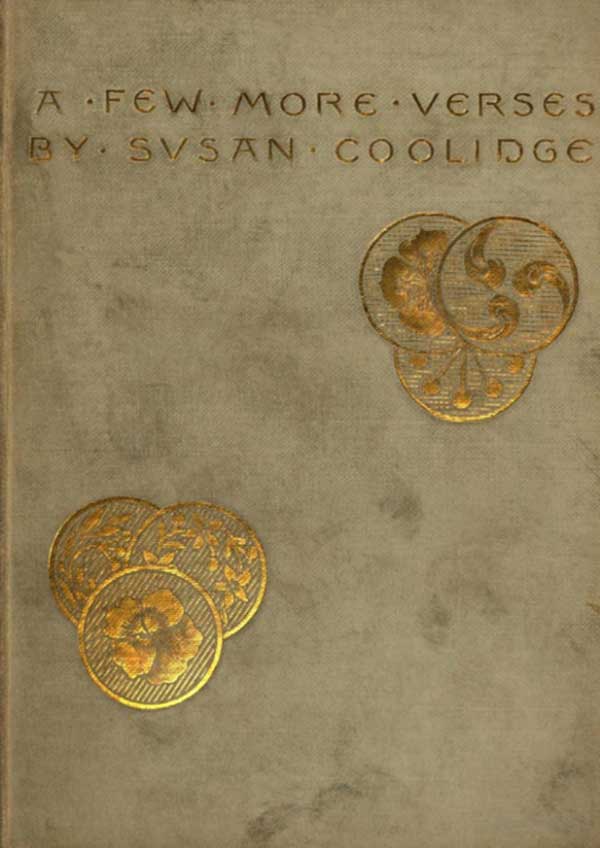Take Necessary Steps Today

Cover of Coolidge’s A Few More Verses
Today's Devotional
Today salvation has come to this house — Luke 19:9 (ESV).
From this day on I will bless you — Haggai 2:19 (NIV).
Every day is a fresh beginning;
Listen, my soul, to the glad refrain,
And spite of old sorrow and older sinning,
And puzzles forecasted and possible pain,
Take heart with the day, and begin again.
—Susan Coolidge.
Every temptation to evil temper which can assail us today will be an opportunity to decide the question whether we shall gain the calmness and the rest of Christ, or whether we shall be tossed by the restlessness and agitation of the world. Nay, the very vicissitudes of the seasons, day and night, heat and cold, affecting us variably, and producing exhilaration or depression, are so contrived as to conduce towards the being which we become, and decide whether we shall be master of ourselves, or whether we shall be swept at the mercy of accident and circumstance, miserably susceptible of merely outward influences. —F. W. Robertson.
Why wilt thou defer thy good purpose from day to day? Arise, and begin in this very instant, and say, “Now is the time to be doing; now is the time to be striving; now is the fit time to amend myself.” Unless thou dost earnestly force thyself, thou shalt never get the victory over sin. —Thomas a Kempis.
About the author and the source
Susan Coolidge (1835–1905) was the pen name of Sarah Chauncey Woolsey, author of the girls’ novel What Katy Did, with its four sequels and many other books. Today’s poem is a quote from her A Few More Verses (1889); F. W. (Frederick William) Robertson (1816–1853) was an English preacher known for his ability to persuade people to act on the gospel; Thomas à Kempis (ca. 1380–1481) was a monk with the Brothers of the Common Life, famed for his work The Imitation of Christ. Mary Wilder Tileston (19th century), who collected all these quotes, made several devotional collections.
“June 14” in Joy and Strength for the Pilgrim’s Day, edited by Mary Wilder Tileston. Boston: Little, Brown and Company, 1901.





